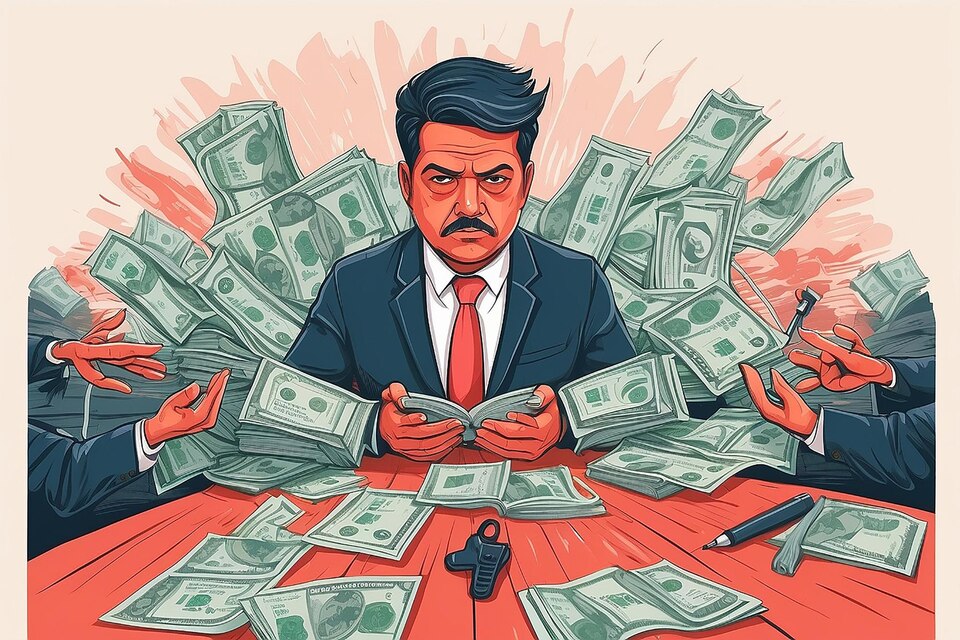Is a Certain Level of Corruption Good for the Economy?

After seeing the title, you might be thinking, ‘Is this some clickbait, or have I stumbled into an alternate reality?’ I mean, who isn’t aware of the traditional notion that views corruption solely as a hindrance to progress? Well, let me tell you, there’s more to this story.
The ‘Grease-the-Wheels’ Hypothesis
In economic theories, there’s this interesting concept known as the ‘grease-the-wheels’ hypothesis. This idea suggests that, in certain situations, corruption could play the role of a well-placed lubricant, effectively tackling the bureaucratic complexities that often challenge economic growth.
The hypothesis argues that, under specific circumstances, paying a bribe might serve as a shortcut through regulations, making development processes smoother and more efficient. Essentially, it raises the possibility that, counterintuitively, corruption could facilitate economic activities by cutting through red tape.
Consider where this corruption is happening. In places where power is firmly held, corruption might act like a strategic tool. Picture the government as a savvy manager, getting things done and giving businesses a vote of confidence. However, in democracies with ever-shifting politics, corruption might not play out as smoothly.
Other Perspectives
However, the ‘grease-the-wheels’ hypothesis is not the only theory that attempts to explain the relationship between corruption and growth. There are other theories that offer different perspectives and insights on this complex and multifaceted phenomenon.
Let’s look at some examples of how corruption might work in different contexts. In China, a country with a strong central authority and a high level of corruption, some scholars have argued that corruption has been a catalyst for economic growth. They claim that corruption has enabled the government to mobilize resources, implement policies, and attract foreign investment, without being constrained by legal or institutional barriers.

On the other hand, in India, a country with a vibrant democracy and a high level of corruption, some scholars have argued that corruption has been a drag on economic growth. They claim that corruption has eroded public trust, distorted resource allocation, undermined governance, and deterred investment, especially in the infrastructure sector.
These contrasting cases suggest that the impact of corruption on economic growth may depend on the quality of institutions and the nature of politics in a given country.
Nuanced Perspectives on Corruption and Economy
Corruption may have positive effects in countries with strong and stable institutions, where it can act as a lubricant for economic transactions. However, corruption may have negative effects in countries with weak and unstable institutions, where it can act as a sand in the wheels of economic activity.
Of course, this does not mean that corruption is the only determinant of an economy. There are many other factors that influence economic performance, such as human capital, technological innovation, social norms, and cultural values.
Moreover, corruption may have different effects on different aspects of the economy, such as productivity, inequality, poverty, and environmental sustainability. Therefore, it is important to adopt a nuanced and multidimensional perspective when analyzing the relationship between corruption and the economy.
Wrapping Up
In conclusion, the question of whether a certain level of corruption is good for the economy is not as simple as it seems. Corruption is a complex and multifaceted phenomenon that can have both positive and negative effects on economic growth, depending on the context and the circumstances.
